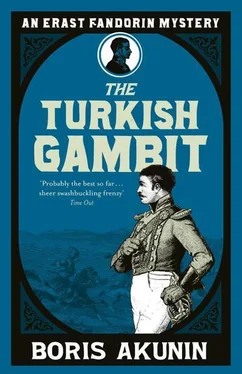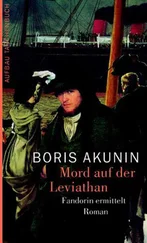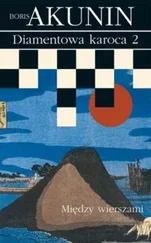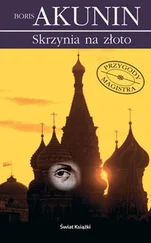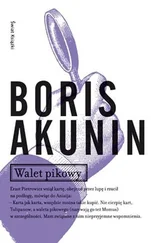'Varvara Andreevna, I went to England, but not for McLaughlin. It was quite c-clear to me that he was not and could not be there.'
'But you did not say a word when His Majesty . . .' Varya bit her tongue before she could blurt out a state secret.
'My arguments would have been m-mere speculation. And I had to go to Europe in any case.'
'And what did you discover there?'
'As was to be expected, the machinations of the British cabinet have nothing to do with the case. That is one. Yes, they do not like us in London. Yes, they are preparing for a great war. But murdering messengers and organising sabotage - that would not do at all. It would contradict the British sense of fair play. And Count Shuvalov told me the same thing.
'I visited the offices of the Daily Post and was convinced of McLaughlin's absolute innocence. That is t-two. His friends and colleagues describe Seamus as a straightforward and forthright man who is hostile to British policy and who may, indeed, have connections with the Irish nationalist movement. There is absolutely no way he could be represented as an agent of the perfidious Disraeli.
'On the return journey, since it lay on my route, I stopped off in Paris, where I was delayed for some time. I called into the offices of the Revue Parisienne . . .'
Paladin made a slight movement and the gendarmes raised their carbines to their shoulders, ready to shoot. The journalist shook his head emphatically and put his hands back under the tails of his riding coat.
'And there it became clear,' Erast Petrovich continued, as though nothing had happened, 'that the illustrious Charles Paladin had never been seen in the offices of his own publication. That is three. He sent in his brilliant articles, essays and sketches by post or telegraph.'
'Well, what of it?' Sobolev objected in exasperation. 'Charles is no mincing socialite; he is a man of adventure.'
'And to an even greater d-degree than Your Excellency supposes. I rummaged through the files of the Revue Parisienne and some very curious coincidences came to light. Monsieur Paladin's first published articles were submitted from Bulgaria ten years ago, at the very time when the Danubian Vilajet was governed by Midhat-pasha, whose secretary was the young official Anwar. In 1868 Paladin submits a number of brilliant articles on the mores of the sultan's court from Constantinople. This is during Midhat-pasha's first period of ascendancy, when he is invited to the capital to lead the Council of State. A year later the reformer is despatched into honourable exile, to distant Mesopotamia and, as though bewitched, the fluent pen of the talented journalist also moves from Constantinople to Baghdad. For three years (the precise period for which Midhat-pasha governed Iraq) Paladin writes about excavations of Assyrian cities, Arab sheikhs and the Suez Canal'
'You're fixing the odds here!' Sobolev interrupted angrily. 'Charles travelled all over the Near East. He also wrote from other places that you do not mention, because they do not fit your hypothesis. In 'seventy-three, for instance, he was in Khiva with me. We survived raging thirst and searing heat together. And there was no Midhat there, Mister Investigator!'
'And from where did he travel to Central Asia?' Fandorin asked the general.
'From Iran, I think.'
'I believe it was not from Iran, but from Mesopotamia. In late 1873 the newspaper publishes his lyrical sketches about Greece. Why Greece all of a sudden? Why, because at that time our Anwar-effendi's patron was moved to Salonika. By the way, Varvara Andreevna, do you recall the marvellous feuilleton about the old boots?'
Varya nodded, gazing at Fandorin as if she were spellbound. What he was saying was so obviously absurd, but how confidently, how elegantly and masterfully he said it! And he had completely stopped stammering.
'It mentioned a shipwreck that took place in the Gulf of Therma in November 1873. The city of Salonika happens to lie on the shore of the gulf. From the same article I learned that in 1867 the author had been in Sophia, and in 1871 in Mesopotamia, for that was precisely when the Arab nomads slaughtered Sir Andrew Wayard's British archaeological expedition. It was after "Old Boots" that I first began to suspect Monsieur Paladin seriously, but he threw me off the track more than once with his cunning manoeuvres . . . And now . . .' - Fandorin put his revolver away and turned towards Mizinov - 'let us summarise the damage inflicted on us by the activities of Mister Anwar. Monsieur Paladin joined the war correspondents' corps in late June last year. At that time our armies were advancing victoriously. The barrier of the Danube had been surmounted, the Turkish army was demoralised, the road lay open to Sophia, and from there to Constantinople. General Gurko's forces had already taken the Shipka Pass, the key to the Great Balkan Range. We had, in effect, already won the war. But what happens after that? Due to a fatal confusion in the coding of a message, our army occupies the irrelevant city of Nikopol and meanwhile Osman-pasha's army corps enters the empty Plevna unhindered, completely cutting off our advance. Let us recall the circumstances of that mysterious story. Cryptographer Yablokov commits a serious offence by leaving a secret message unattended on his table. Why did Yablokov do this? Because he was overwhelmed by news of the unexpected arrival of his fiancee, Miss Suvorova.'
Everyone looked at Varya, making her feel as though she were an item of material evidence.
'But who informed Yablokov of his fiancee's arrival? The journalist Paladin. When the cryptographer went dashing away, insane with joy, all that had to be done was to rewrite the coded message, replacing the word "Plevna" with the word "Nikopol". Our military code is not exactly complicated, to put it mildly. Paladin knew about the Russian army's forthcoming manoeuvre, because he was there when I told you, Mikhail Dmitrievich, about Osman-pasha. Do you recall the first time we met?'
Sobolev nodded morosely.
'Well then, to continue: let us recall the story of the mythical Ali-bei, whom Paladin supposedly interviewed. That "interview" cost us two thousand dead, and left the Russian army bogged down at Plevna with no end in sight. It was a risky trick: Anwar inevitably attracted suspicion to himself; but he had no alternative. If it came to it, the Russians could have simply left a covering force to contain Osman and pushed their main forces further south. However, the failure of the first assault created an exaggerated idea of the danger of Plevna in the mind of our command, and the full might of the army was turned against a little Bulgarian town.'
'Wait, Erast Petrovich; Ali-bei really did exist after all!' Varya exclaimed. 'Our scouts saw him in Plevna!'
'We shall come back to that a little later. But for now let us recall the circumstances of the second battle of Plevna, the blame for which we laid on the treacherous Roumanian colonel Lukan, who had apparently betrayed our plan of battle to the Turks. You were right, Lavrenty Arkadievich, the "J" in Lukan's notebook does stand for "journalist", only not McLaughlin, but Paladin. He was able to recruit the Roumanian dandy with no great difficulty - his gambling debts and inordinate vanity made the colonel easy prey; and in Bucharest Paladin cunningly exploited Miss Suvorova in order to rid himself of an agent who was no longer useful and had actually begun to be dangerous. In addition, I assume, Anwar needed to meet with Osman-pasha. Banishment from the army - purely temporary, and with his rehabilitation planned beforehand - gave him the opportunity. The French correspondent was absent for a month. And it was precisely during that period that our intelligence service reported that the Turkish commander had a mysterious adviser called Ali-bei. This same Ali-bei deliberately made fleeting appearances in crowded public places, sporting his conspicuous beard. You must have had a great laugh at our expense, Mister Spy.'
Читать дальше
